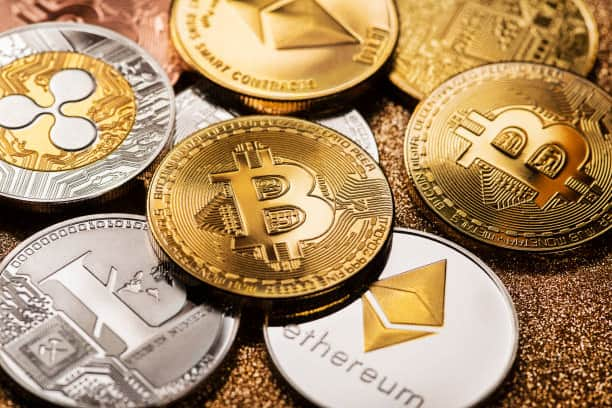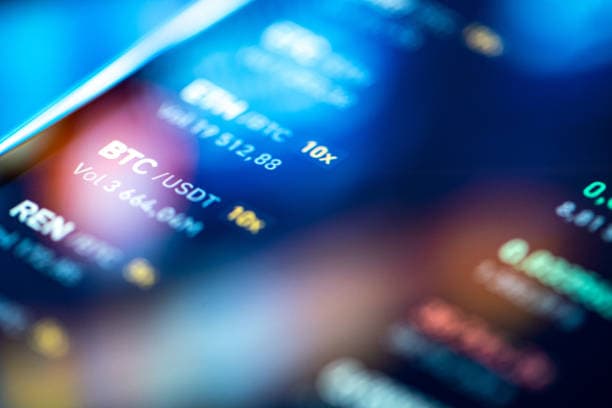How to Secure Your Digital Currency Investments? Protections and Advice
In the world of cryptocurrencies, investing in digital assets offers great potential, but it also comes with considerable risk. As the market continues to fluctuate, it's especially important to protect your investments. So how do you keep your digital currency investments safe? Today, we're going to take a closer look at digital currency safeguards and security recommendations to help you build a stronger defense against risk and avoid losing your money. From basic security practices to advanced protection techniques, this article will provide you with complete guidance to stay ahead in this market of opportunity and challenge.

Choose a reliable exchange
Before trading digital currency, it is crucial to choose a reliable and secure exchange. There are hundreds of trading platforms on the market today, but not all of them can guarantee the safety of your funds. When choosing an exchange, you should pay attention to the following key elements: the platform's security measures, regulatory environment, user ratings, and whether the exchange offers cold wallet storage. For example, global exchanges like OKX offer 2FA, cold wallet storage, and regular security audits, all of which are effective in preventing hacking attacks.
For exchanges with higher trading volume and liquidity, their security is usually better protected. Whichever exchange you choose, make sure it has adequate insurance mechanisms in place to protect users' funds, and check for a history of security breaches as this will minimize risk.
Enabling Dual Authentication (2FA)
Double Authentication (2FA) is one of the most basic and effective security measures to protect digital currency trading accounts. With 2FA enabled, in addition to your password, you will need to provide an additional means of authentication (such as SMS on your cell phone or an app-generated dynamic code) before you can log in or perform an operation, which greatly enhances the security of your account. Even if hackers are able to obtain your account password, they will still not be able to conduct transactions or transfer funds without the correct secondary authentication code.
Currently, most major exchanges (including Euronext, CoinSafe, etc.) offer 2FA functionality, and it is recommended that all users enable this feature. To further increase security, you can also choose to use a hardware wallet (such as Ledger or Trezor) to store cryptocurrencies with 2FA protection.
Cold wallet vs. hot wallet
Cold wallets and hot wallets are the two main types of digital currency storage. Cold wallets are devices that are not connected to the Internet, such as hardware wallets or paper wallets, which are relatively more secure because they are not exposed to the risk of hacking. Cold wallets are ideal if you plan to hold digital assets for the long term.
A hot wallet is a wallet connected to the Internet, and although it is more convenient, it is also relatively vulnerable to cyber attacks. Therefore, if you need to make frequent transactions, you can keep a portion of your funds in a hot wallet and keep a larger amount in a cold wallet. This balances security and liquidity.
Update passwords regularly and use strong passwords
Passwords are the first line of defense in securing your account, but many people overlook the strength and security of passwords. It is recommended that you change your passwords regularly and use strong passwords that include upper and lower case letters, numbers, and special symbols. Avoid simple passwords related to your personal information (e.g., birthday, name), which are easy to crack.
Each account should have a different password. This way, even if a security breach occurs on one platform, other accounts will remain secure. You may also want to consider using a password management tool to save and generate more complex passwords to keep your accounts secure and eliminate the need to memorize complicated passwords.
Beware of Phishing Attacks and Scams
Phishing is a common tactic used by cybercriminals to steal a user's private information or funds. These attacks often take the form of fake official emails or websites that trick users into entering their personal information or login credentials. To avoid becoming a victim of fraud, it is advisable to regularly check the senders of emails and messages and avoid clicking on unknown links.

When trading, it is also important to pay attention to the correctness of the URL. Official exchange sites should begin with "https" and display a green lock icon, which indicates that the site is secure. Be wary of any request for your private key, no matter how genuine it may seem. Never share your private key or password with anyone.
Setting up a whitelist for withdrawals
Many exchanges offer a "whitelist" feature, which means that you can set up your account so that only certain withdrawal addresses can be used to withdraw funds, while other addresses are inaccessible. This is a very effective security measure that prevents hackers from transferring funds to your own address once they have your account login information.
After setting up a whitelist for withdrawals, exchanges usually ask for a second confirmation (e.g. verification via email or cell phone) each time you change your withdrawal address. This way, even if your account is compromised, hackers cannot transfer funds to an unknown address.
Keep software and equipment up to date
Whether it's an exchange app, a digital wallet, or the operating system you use, you need to keep it up to date. Software updates not only provide better functionality, but also fix vulnerabilities and prevent security risks. Hackers often exploit vulnerabilities in systems that are not up to date, so regular updates are a fundamental step in preventing security problems.
Protecting your devices with antivirus software and firewalls is also effective in minimizing malware threats. These small details can help you stay safe in your daily transactions.
Frequently Asked Questions Q&A
Q1: Why do I need a cold wallet instead of just using a hot wallet?
Cold wallets are not connected to the Internet and are therefore less susceptible to hacking. If you have a large amount of assets that you need to keep for a long time, using cold wallet is a safer option.
Q2: How to choose a reliable exchange?
When choosing an exchange, you should consider its security, regulatory status, user ratings, and whether it offers insurance coverage. It is safer to choose a platform that is regulated and has a good reputation.
Q3: How can I protect myself from phishing scams?
Check the sender of emails or messages carefully and avoid clicking on unknown links. If you are asked to provide private information, please verify it first and do not disclose it easily.
I hope this article has helped you to improve your digital currency investing security so that you can trade more confidently in this volatile market.














